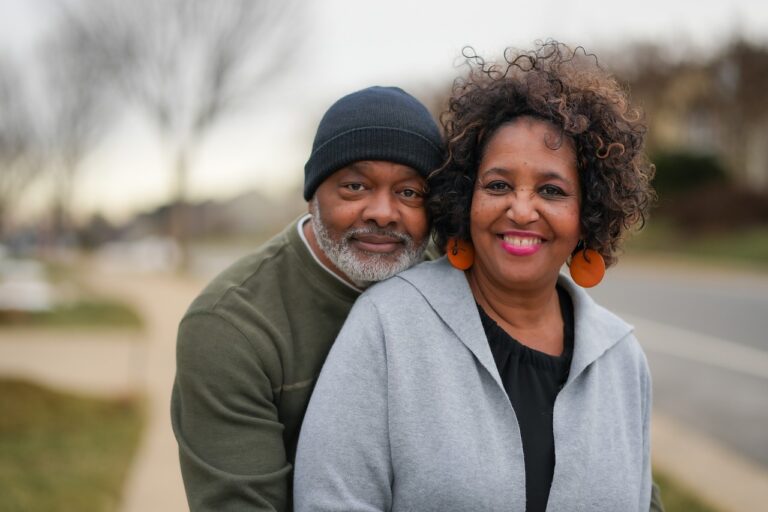Safe Havens: Finding Dating Violence Help Near You
Getting Started: Recognizing the Signs of Dating Violence
Recognizing the signs of dating violence is essential in protecting oneself and others in relationships. While it may be easy to dismiss certain behaviors as a simple argument or disagreement, it is important to be aware of the warning signs that may indicate a more significant issue. Often, controlling behaviors such as constant monitoring, isolation from friends and family, or excessive jealousy are red flags to watch out for.

Understanding the Impact: How Dating Violence Affects Individuals
Dating violence is a pervasive issue that can have profound effects on individuals. Whether physical, emotional, or psychological, the impact of abuse within a relationship can be devastating.

Breaking the Silence: Opening Up About Dating Violence
When it comes to dating violence, one of the most important steps towards addressing the issue is breaking the silence. Many individuals who experience dating violence often feel ashamed or afraid to speak up about their experiences. However, by opening up and sharing their stories, survivors can help to raise awareness about the prevalence of dating violence and break the cycle of silence that perpetuates it.
Sharing your experiences can not only help bring attention to the issue, but it can also provide support and validation for others who may be going through similar situations. By breaking the silence, you are letting others know that they are not alone and that there is help available. It takes courage to speak up, but the more we talk about dating violence, the more we can work towards creating a society where it is not tolerated.
Seeking Support: Where to Find Help for Dating Violence
When it comes to seeking support for dating violence, there are various avenues you can explore. One option is to reach out to local resources in your area. Many communities have organizations that specialize in providing assistance to survivors of dating violence. These organizations can offer a range of services, such as counseling, support groups, and information on legal options. By connecting with these local resources, you can find the support and guidance you may need to navigate through the challenges of dating violence.
Another avenue to consider is tapping into the resources available at educational institutions. Schools often have dedicated staff members, such as counselors or social workers, who are trained to help students dealing with dating violence. They can provide a safe space for you to share your experiences, offer guidance on how to protect yourself, and connect you with additional resources. Whether you are in high school or college, these professionals are there to support you and help you find the help you need. Don’t hesitate to reach out and utilize the school-based help that is available to you.
• Local resources in your area:
– Organizations specializing in providing assistance to survivors of dating violence
– Services offered may include counseling, support groups, and information on legal options
• Educational institutions:
– Schools often have dedicated staff members trained to help students dealing with dating violence
– These professionals can provide a safe space for you to share your experiences and offer guidance on self-protection
– They can also connect you with additional resources
• High school or college support:
– Whether you are in high school or college, there are professionals available to support you
– Don’t hesitate to reach out and utilize the help that is available at your educational institution
Local Resources: Organizations Providing Assistance in Your Area
Finding help and support in your local community is crucial when it comes to addressing dating violence. Luckily, there are numerous organizations in your area that are dedicated to providing assistance to those affected by this issue. These organizations consist of trained professionals who understand the complexities of dating violence and are there to support and guide survivors through their journey towards healing and recovery.
Whether you need immediate help or ongoing support, these local resources offer a range of services that can make a significant difference in your life. From crisis hotlines and counseling services to support groups and educational workshops, these organizations have a wealth of knowledge and resources to empower you and help you navigate through the challenges of dating violence. Remember, you don’t have to face this alone – reach out to these organizations in your area and let them be your guiding light towards a brighter future.
School-Based Help: Utilizing Resources at Educational Institutions
Schools play a vital role in addressing the issue of dating violence among students. By utilizing the resources available at educational institutions, young individuals can find much-needed support and guidance. Many schools have counseling services, where students can seek professional help and discuss their experiences in a safe and confidential environment. These counselors are not only trained to provide emotional support but also offer valuable advice on how to recognize the signs of dating violence and how to stay safe in relationships. In addition to counseling services, schools often have peer support groups or clubs that focus on promoting healthy relationships and raising awareness about dating violence. These groups provide a platform for students to share their stories, offer support to others, and collaborate on initiatives to combat dating violence within the school community.
Another valuable resource within schools is the presence of trusted teachers and staff members. These individuals can act as a source of support for students who may be experiencing dating violence. By fostering a trusting relationship with these adults, students can feel comfortable opening up about their experiences and seeking help. Teachers and staff members can also provide guidance on available school policies and procedures for addressing dating violence, as well as connect students with any necessary external resources. Schools can also play a crucial role in educating students about healthy relationships through informational sessions, guest speakers, or workshops. By incorporating dating violence prevention into the curriculum, students can develop a deeper understanding of the issue and learn valuable strategies for maintaining healthy relationships.
Online Support: Finding Virtual Communities for Support
In today’s digital age, finding support for dating violence has become easier than ever. Virtual communities are emerging as a powerful resource for individuals seeking to connect with others who have experienced similar struggles. These online support networks provide a safe and anonymous space for survivors of dating violence to share their stories, seek advice, and offer support to one another.
One of the most significant advantages of virtual communities is the accessibility they offer. Unlike traditional support groups, online platforms are available 24/7, allowing individuals to connect whenever they need it most. Whether it’s in the middle of the night or during a busy workday, these virtual communities ensure that individuals are never alone in their journey of healing. Additionally, the anonymity provided by these platforms allows survivors to feel more comfortable sharing their experiences without fear of judgment or stigma. This virtual support system serves as a vital lifeline for many, giving them the opportunity to express themselves freely and find solace in the understanding and empathy of others.
Counseling Services: Accessing Professional Help for Dating Violence
Dating violence can be a deeply traumatic experience, leaving individuals with emotional and psychological scars that can last a lifetime. In such situations, seeking professional help can make a significant difference in the healing process.

Professional counselors specialize in dealing with issues related to dating violence and are trained to provide guidance, support, and therapeutic interventions. They can help survivors navigate through their emotions, process their trauma, and develop healthy coping mechanisms. Counseling sessions often focus on establishing a sense of safety, rebuilding self-esteem, and learning how to establish healthy boundaries in future relationships. With their expertise, counselors can be instrumental in helping survivors of dating violence regain control of their lives and thrive beyond their past experiences.
Legal Options: Understanding the Legal Remedies for Dating Violence
Legal Options: Understanding the Legal Remedies for Dating Violence
When it comes to addressing dating violence, it’s important to be aware of the legal remedies available to victims. The legal system can provide a way to seek justice and protection from further harm. One legal option is obtaining a restraining order, also known as a protection order or an order of protection. This court order restricts the abusive partner from contacting or being near the victim, providing a sense of safety and control. It’s crucial to understand the specific laws and procedures regarding restraining orders in your jurisdiction, as they may vary from one place to another.
Another legal avenue to consider is pressing criminal charges against the perpetrator. If you have experienced physical assault or other criminal acts in the context of dating violence, you have the right to report the incident to the police. By filing a police report, you initiate the process of holding the abuser accountable for their actions. This often involves gathering evidence, such as medical records and witness statements, to support your case. The decision to pursue criminal charges is a personal one, and it’s important to weigh the potential benefits and challenges before making a decision.
Building a Support Network: Creating a Strong System of Support for Dating Violence Survivors
Creating a strong support network is crucial for dating violence survivors to heal and rebuild their lives. It provides a safe space where they can share their experiences, feel understood, and gain encouragement from others who have gone through similar situations. By connecting with friends, family members, or support groups, survivors can find comfort and validation in knowing that they are not alone in their journey.
Building a support network begins with reaching out to trusted individuals who can provide emotional support, such as close friends or family members. It is important to choose people who are empathetic, non-judgmental, and willing to listen without dismissing or minimizing the survivor’s experiences. These individuals can offer a listening ear, offer advice if asked, or simply be a source of comfort during difficult times. Additionally, online support communities and helplines can provide an avenue for survivors to connect with others who have faced similar challenges and can offer a sense of solidarity and understanding.
What are some signs of dating violence?
Some signs of dating violence include physical aggression, verbal abuse, controlling behavior, isolation from friends and family, and constant monitoring of activities.
How does dating violence affect individuals?
Dating violence can have a significant impact on individuals, leading to emotional trauma, low self-esteem, anxiety, depression, and even physical injuries.
How can I open up about my experience with dating violence?
Breaking the silence about dating violence can be challenging, but it’s important to confide in a trusted friend, family member, or counselor who can provide support and guidance.
Where can I find help for dating violence?
There are several resources available for dating violence survivors, such as hotlines, support groups, counseling centers, and local organizations specializing in assisting survivors.
Are there any organizations that provide assistance in specific areas?
Yes, there are local resources and organizations in various areas that offer support and assistance to survivors of dating violence. You can search online or contact your local domestic violence hotline for specific recommendations.
How can educational institutions help with dating violence?
Schools often have resources dedicated to addressing dating violence, such as counseling services, support groups, and educational programs aimed at preventing and addressing dating violence among students.
Where can I find virtual communities for support?
Online support groups and virtual communities are available for dating violence survivors. Websites, forums, and social media groups provide a safe space to connect with others who have experienced similar situations.
How can I access professional help for dating violence?
Counseling services, both private and through organizations, can provide professional help for dating violence survivors. It’s important to reach out to licensed therapists or counselors who specialize in trauma and relationship issues.
What legal options are available for dating violence survivors?
Legal remedies for dating violence include filing for protection orders, seeking restraining orders, and pressing charges against the perpetrator. Consulting with a lawyer or contacting your local law enforcement agency can provide guidance on the legal options available to you.
How can I create a strong support network as a dating violence survivor?
Building a support network involves reaching out to trusted friends, family members, support groups, and professionals who can provide emotional support, guidance, and resources during your healing process.






